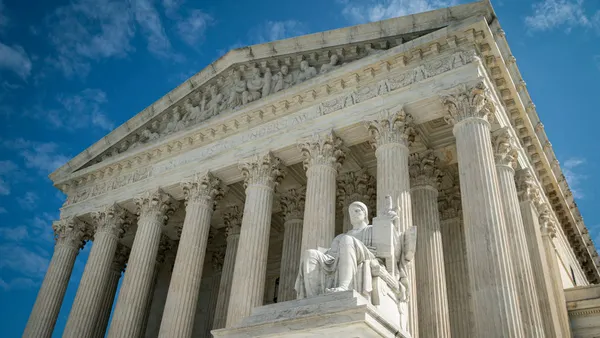Dive Brief:
- The Labor Dept. has stepped up investigations into employers’ compliance efforts under the Mental Health Parity and Addiction Equity Act (MHPAEA), writes SHRM. The DOL is scrutinizing employers’ health plans to ensure they offer the same level and quality of service for mental health illnesses and disorders (whether or not impacted by substance abuse) as they do for other medical conditions.
- The DOL measures plan sponsors’ compliance with the MHPAEA using what it calls “quantitative” and “nonquantitative” criteria. Quantitative criteria include limits on financial requirements — such as co-insurance, co-payments, deductibles and out-of-pocket costs — and limits on treatment requirements, such as the number of treatments, hospital stays and office visits. SHRM says employees can substantiate quantitative criteria, but may have difficulty doing the same for nonquantitative criteria, which include provider quality, pre-authorization requirements and written-plan requirements.
- MHPAEA violators could be charged with neglecting their fiduciary duty under the Employee Retirement Income Security Act. They might also be charged an IRS excise tax of $100 per covered employee per day.
Dive Insight:
As SHRM also points out, the DOL, IRS and Dept. of Health and Human Services has issued guidance that offers employers “red flags” for determining whether their plans have nonquantitative limits.
Employers should have legal counsel thoroughly review their plans, including all documents and summary descriptions to avoid violating the law. They also should be careful not to pass on their fiduciary duties to a third party. Under DOL rules, the plan sponsor has fiduciary responsibilities and therefore is liable for violations.









